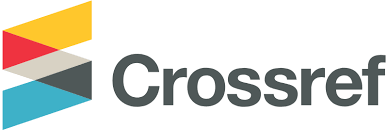Publication Ethics
Jurnal Penelitian Enjiniring (JPE) is committed to ensuring the highest standards of publication ethics whereas the publication malpractice is strictly prohibited by all possible measure. Our responsibility is to publish original work of value to the intellectual community in the best possible form and to the highest possible standards. We expect similar standards from all parties involved in the publishing of an article for JPE, i.e.: the author, the editor, and the reviewer. JPE endorses and behaves in accordance with the codes of conduct and international standards established by the Committee on Publication Ethics (COPE). JPE is committed to following ethical ethics and behaviour.
DUTIES OF EDITORS
Decision on the Publication of Articles
The Editor in Chief of JPE is responsible for deciding which of the articles submitted to the journal should be published. The Editor in Chief is guided by the policies of the journal's editorial board and subjected to such legal requirements regarding copyright and plagiarism. The Editor in Chief may confer with other editors or reviewers in making this final decision.
Fair play
Manuscripts shall be evaluated solely on their intellectual merit without regard to author's race, gender, sexual orientation, religious belief, ethnic origin, or citizenship.
Confidentiality
The Editor in Chief and any editorial staff must not disclose any information about a submitted manuscript to anyone other than the corresponding author, reviewers, potential reviewers, other editorial advisers, and the publisher.
Disclosure and conflicts of interest
Unpublished materials disclosed in a submitted manuscript must not be used by anyone who has a view of the manuscript (while handling it) in his or her own research without the express written consent of the author.
DUTIES OF REVIEWERS
Contribution to editorial decision
Peer review assists the Editor in Chief and the editorial board in making editorial decisions while editorial communications with the author may also assist the author in improving the paper.
Promptness
Any selected referee who feels unqualified to review the assigned manuscript or unable to provide a prompt review should notify the editor and excuse himself from the review process.
Confidentiality
Manuscripts received for review must be treated as confidential documents. They must not be shown to, or discussed with, others except as authorized by the Editor in Chief. Privileged information or ideas obtained through peer review must be kept confidential and not used for personal advantage.
Standards of Objectivity
Reviews should be conducted objectively. There shall be no personal criticism of the author. Reviewers should express their views clearly with supporting arguments.
Acknowledgement of Sources
Reviewers should identify relevant published work that has not been cited by the authors. Any statement that had been previously reported elsewhere should be accompanied by the relevant citation. A reviewer should also call to the Editor in Chief/Editorial Board member's attention any substantial similarity or overlap between the manuscript under consideration and any other published paper of which they have personal knowledge.
Disclosure and Conflicts of Interest
Reviewers should not review manuscripts in which they have conflicts of interest resulting from competitive, collaborative, or other relationships or connections with any of the authors, companies, or institutions connected to the papers.
DUTIES OF AUTHORS
Reporting standards
Authors of reports of original research should present an accurate account of the work performed as well as an objective discussion of its significance. Underlying data should be represented accurately in the paper. A paper should contain sufficient detail and references to permit others to replicate the work.
Data Access and Retention
Authors may be asked to provide the raw data in connection with a paper for editorial review, and should be prepared to provide public access to such, if practicable, and should in any event be prepared to retain such data for a reasonable time after publication.
Originality and Plagiarism
Authors should ensure that they have written entirely original works, and if the authors have used the work and/or words of others this must be appropriately cited or quoted.
Multiple and Concurrent Publications
An author should not in general publish manuscripts describing essentially the same research in more than one journal or primary publication. Submitting the same manuscript to more than one journal concurrently constitutes unethical publishing behavior and is unacceptable.
Acknowledgement of Sources
Proper acknowledgment of the work of others must always be given. Authors should cite publications that have been influential in determining the nature of the reported work.
Authorship of the Paper
Authorship should be limited to those who have made a significant contribution to the conception, design, execution, or interpretation of the reported study. All those who have made significant contributions should be listed as co-authors. Where there are others who have participated in certain substantive aspects of the research project, they should be acknowledged or listed as contributors.
Disclosure and Conflicts of Interest
All authors should disclose in their manuscript any financial or other substantive conflict of interest that might be construed to influence the results or interpretation of their manuscript. All sources of financial support for the project should be disclosed.
Fundamental errors in published works
When an author discovers a significant error or inaccuracy in his/her own published work, it is the author's obligation to promptly notify the journal editor or publisher and cooperate with the editor to retract or correct the paper.








